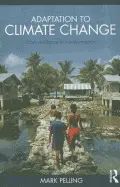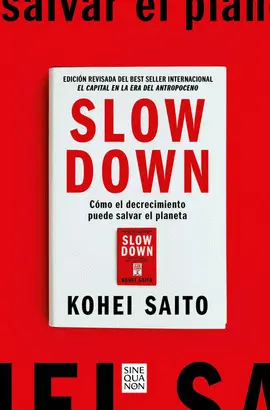- Editorial:
- ROUTLEDGE
- Materia:
- Ciencia - STEM
- ISBN:
- 978-0-415-47751-2
ADAPTATION TO CLIMATE CHANGE
FROM RESILIENCE TO TRANSFORMATION
MARK RELLING
Biographical Note:
Mark Pelling is Reader in Geography at King s College London and before this at the University of Liverpool and University of Guyana. His research and teaching focus on human vulnerability and adaptation to natural hazards and climate change. He has served as a lead author with the IPCC and as a consultant for UNDP, DFID and UN-HABITAT. "
Table of Contents:
List of illustrations -- List of acronyms and abbreviations -- Acknowledgements -- Part I. Framework and theory -- 1. The adaptation age -- Adapting to climate change -- The idea of adaptation -- The IPCC-UNFCCC frame -- The costs of adapting -- Conceptual development -- Structure of the book -- 2. Understanding adaptation -- An adaptation lexicon -- The antecedents of adaptation -- Cybernetics -- Coevolution -- Adaptive management -- Coping mechanisms -- Adaptation as a contemporary development concern -- A typology of adaptation -- Resilience and adaptation -- Adaptation thresholds -- Evaluating adaptive choices: economics and ethics -- Three visions of adaptation: resilience, transition and transformation -- part. The resilience-transition-transformation framework -- 3. Adaptation as resilience: social learning and self-organisation -- A vision of adaptation as resilience -- Framing of resilience -- Social learning -- Self-organisation -- Organisations as sites for adaptation -- Pathways for organisational adaptation -- Conclusion -- 4. Adaptation as transition: risk and governance -- A vision of adaptation as transition -- Governance and transition -- Socio-technical transitions -- Urban regimes and transitional adaptation -- Conclusion -- 5. Adaptation as transformation: risk society, human security and the social contract -- A vision of adaptation as transformation -- Modernity and risk society -- The social contract -- Human security -- Disasters as tipping points for transformation -- Conclusion -- Part II. Living with climate change -- 6. Adaptation within organisations -- Context: policy and methods -- Case study analysis -- The Environment Agency -- Grasshoppers farmers' group -- Conclusion -- 7. Adaptation as urban risk discourse and governance -- Context: policy and methods -- Case study analysis -- Cancun -- Playa del Carmen -- Tulum -- Mahahual -- Conclusion -- 8. Adaptation as national political response to disaster -- Context: policy and methods -- Case study analysis -- 1970, East Pakistan (Bangladesh): the Bhola Cyclone and the politics of succession -- 1998, Nicaragua: Hurricane Mitch, a missed opportunity for transformation -- 2005, New Orleans, USA: transformation denied by political dilution -- Conclusion -- Part IV. Adapting with climate change -- 9. Conclusion: adapting with climate change -- How to adapt with climate change? -- Diversify the subject and object of adaptation research and policy -- Focus on social thresholds for progressive adaptation -- Recognise multiple adaptations: the vision effect -- Link internal and external drivers of adaptation -- A synthesis of the argument -- The age of adaptation -- The adaptation tapestry -- The resilience-transition-transformation framework -- Sites of adaptive action -- From theory to action -- References -- Index.
Marc Notes:
Includes bibliographical references and index.;Avail. in cloth.
Publisher Marketing:
This book argues that adaptation to climate change is an opportunity to rejuvinate a progressive politics of development - reducing risk to build human capacity.
Review Citations:
Reference and Research Bk News 04/01/2011 pg. 294 (EAN 9780415477505, Hardcover)
Contributor Bio: Pelling, Mark
Mark Pelling is Reader in Human Geography at King 's College London and author of The Vulnerability of Cities (2003).








